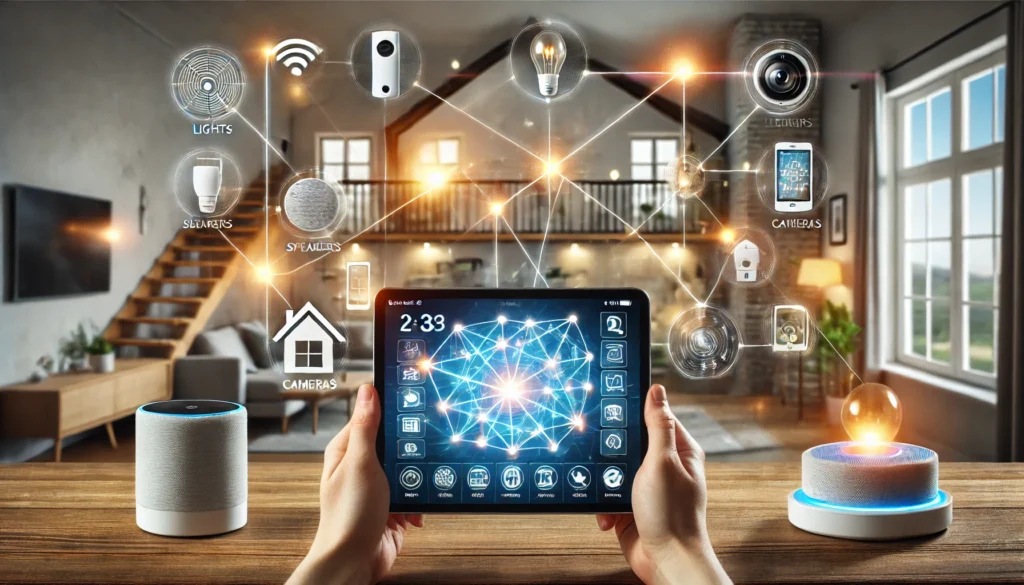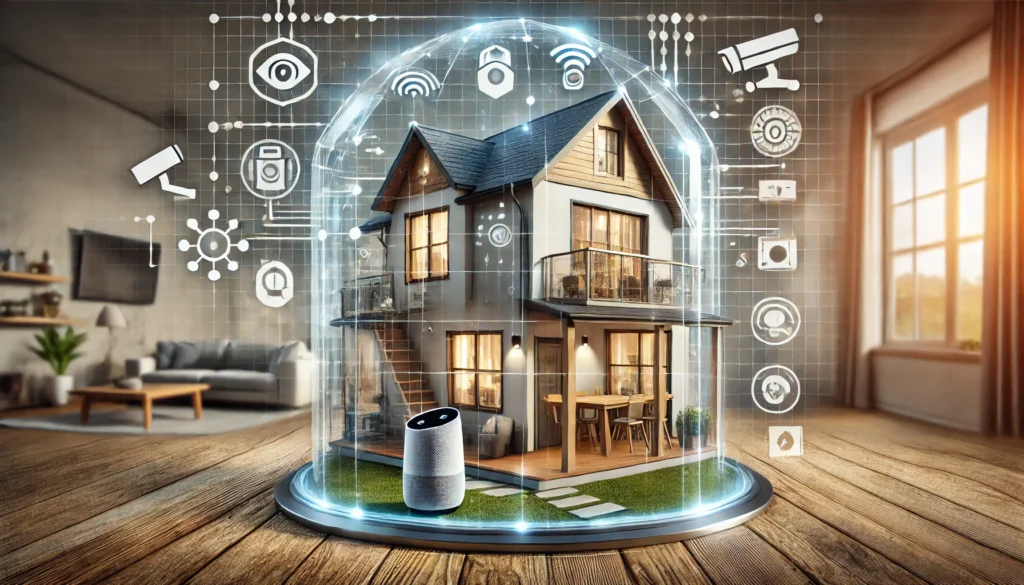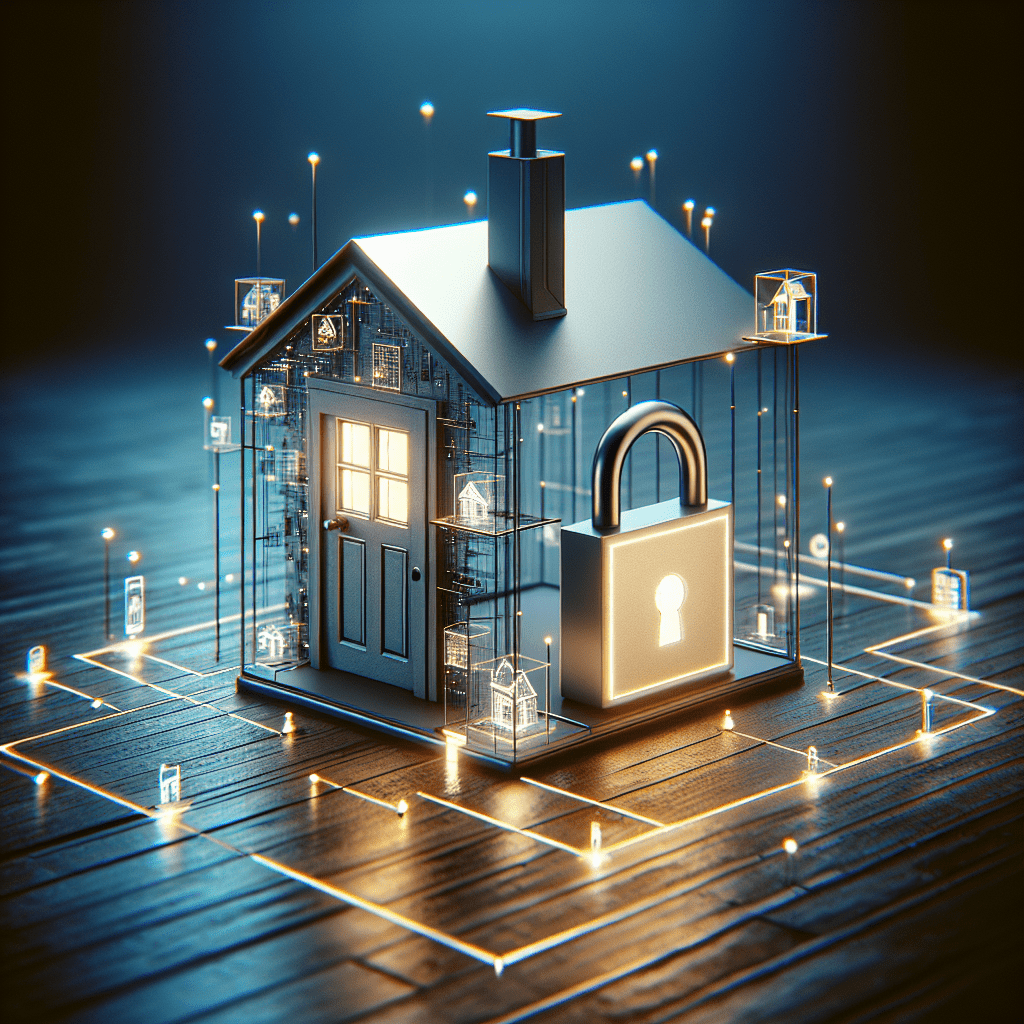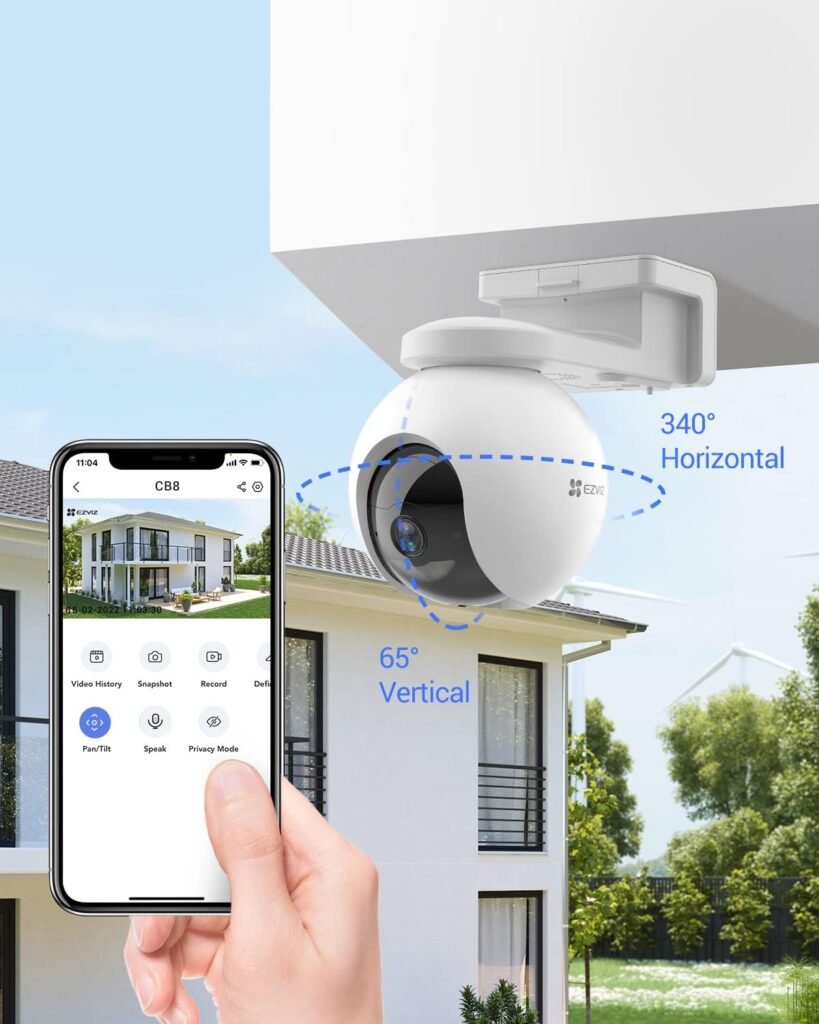In today’s world, where technology is becoming more integrated into our everyday lives, the rise of smart home technology has brought convenience and efficiency to new heights. However, as our homes become smarter, so do the concerns surrounding our privacy. With the ability for devices to monitor and collect personal data, understanding the privacy concerns surrounding smart home technology is more important than ever. In this article, we will explore the potential risks and vulnerabilities that come with having a smart home, as well as provide tips on how to protect your privacy in this interconnected world.

Understanding Smart Home Technology
Smart Home Technology refers to the integration of various devices and systems within a home that are connected to a network, allowing them to be remotely controlled and automated. These devices can range from lights, thermostats, and door locks to appliances, security cameras, and voice assistants. The goal of smart home technology is to enhance convenience, energy efficiency, and security in the household.
Definition of Smart Home Technology
Smart Home Technology is a network of devices and systems that work together to provide automation, control, and monitoring capabilities to homeowners. These devices are connected through a central hub or a home automation platform, which enables users to remotely access and control them via a smartphone, tablet, or computer. The technology utilizes internet connectivity, wireless communication protocols, and artificial intelligence to create an interconnected ecosystem within the home.
Overview of its Benefits and Features
Smart Home Technology offers numerous benefits to homeowners. One of the main advantages is the convenience it provides. With smart home devices, you can control various aspects of your home with just a few taps on your smartphone or voice commands. For example, you can turn on the lights, adjust the thermostat, or even lock/unlock doors, all from the comfort of your couch or while away from home.
Energy efficiency is another significant benefit of smart home technology. By integrating smart thermostats, lighting systems, and appliances, you can optimize energy usage and reduce your carbon footprint. Smart thermostats learn your preferences and adjust the temperature accordingly, helping you save on utility bills. Similarly, smart lighting systems enable you to schedule or customize lighting levels for different rooms, creating a more energy-efficient home environment.
Home security is enhanced through smart home technology. Smart security cameras, door/window sensors, and motion detectors provide real-time monitoring and alert homeowners of any suspicious activities. Homeowners can also remotely view surveillance footage and receive alerts on their smartphones, ensuring peace of mind even when away from home.
Privacy Concerns in Smart Home Technology
While smart home technology offers a myriad of benefits, it also raises privacy concerns that homeowners should be aware of. Smart home devices collect and store a significant amount of personal data, including usage patterns, preferences, and even audio/video recordings. This data can be vulnerable to unauthorized access and misuse, posing risks to personal privacy.
Importance of Privacy in Smart Homes
Privacy is a fundamental right for individuals, and it becomes even more crucial in our increasingly connected world. In the context of smart home technology, privacy ensures that personal information remains secure and confidential. It allows individuals to have control over their data and decide how it is used, disclosed, and shared.
Risks and Vulnerabilities
Smart home devices are susceptible to various risks and vulnerabilities that can compromise privacy. For instance, hackers may exploit security flaws in devices or networks to gain unauthorized access to sensitive information. This could include personally identifiable information, video/audio recordings, or even control over the smart home system.
In addition, there is the risk of data breaches, where personal information is stolen or leaked by malicious actors. This can have severe consequences, such as identity theft or invasion of privacy. Furthermore, smart home devices that have continuous connectivity can be a gateway for cybercriminals to infiltrate other devices or networks in the household.
Data Collection and Monitoring
Smart home devices continuously collect and monitor data to provide their intended functionality. This can include information on device usage, environmental conditions, and user behavior. While this data collection is necessary for the devices to function effectively, it raises concerns about the scope, purpose, and security of the collected data.
It is essential to understand what data is being collected, how it is stored, and who has access to it. Transparency in data collection practices is crucial, as users should have a clear understanding of what information is being shared and for what purposes. Additionally, users should be aware of the duration of data storage and whether it is anonymized or personally identifiable.

Unauthorized Access and Hacking
One of the significant privacy risks in smart home technology is unauthorized access and hacking. As smart home devices become more prevalent, they become enticing targets for cybercriminals seeking to exploit vulnerabilities in their security systems.
Potential Risks of Unauthorized Access
Unauthorized access to smart home devices can have severe consequences. An attacker may gain control over various aspects of your home, such as unlocking doors, disabling security systems, or tampering with appliances. This intrusion can pose significant risks to physical security, personal safety, and privacy.
Security Breaches and Exposures
Smart home devices can be susceptible to security breaches due to flaws in their design, configuration, or software. These breaches can result in unauthorized access to personal information, including audio/video recordings, usage patterns, and even access to other connected devices or networks. Such exposures can lead to identity theft, blackmail, or stalking.
Impact on Personal Information
Personal information collected by smart home devices is highly valuable to cybercriminals. They can exploit this information for various malicious purposes, such as identity theft, financial fraud, or targeted advertising. The exposure of personal information can have long-lasting consequences and may result in significant harm to individuals and their families.
Smart Home Devices and Data Collection
Smart home devices come in various forms and functionalities, each with its own unique data collection capabilities and purposes.
Types of Smart Home Devices
Smart home devices encompass a wide range of products that make our lives more convenient and efficient. Some common types of smart home devices include smart speakers, thermostats, lighting systems, security cameras, door locks, and kitchen appliances. Each of these devices collects specific data based on their intended functions.
Data Collected by Smart Home Devices
The data collected by smart home devices can include information on device usage, environmental conditions, user preferences, and even audio/video recordings. For example, a smart thermostat may collect data on temperature settings, while a smart security camera may record video footage of your home surroundings. The collected data is used to personalize device settings, provide recommendations, and improve overall functionality.
Purpose and Use of Collected Data
The purpose and use of collected data vary among smart home devices and manufacturers. Some data is used for internal purposes, such as improving product performance or developing new features. Other data may be shared with third-party companies for targeted advertising or product recommendations. It is essential for users to understand how their data is being used and shared and to have the option to opt-out if desired.
Privacy Laws and Regulations
Privacy laws and regulations play a crucial role in protecting individuals’ rights and ensuring responsible data handling practices. However, the rapid growth of smart home technology has presented challenges in regulating this evolving field.
Existing Privacy Laws and Regulations
Many countries have privacy laws and regulations in place to protect individuals’ personal information. For example, the United States has the California Consumer Privacy Act (CCPA) and the European Union implemented the General Data Protection Regulation (GDPR). These laws emphasize transparency, consent, and control over personal data.
Compliance and Enforcement
Ensuring compliance with privacy laws and regulations is vital for manufacturers and service providers in the smart home industry. They must implement measures to protect personal information, obtain informed consent, and provide transparency in their data collection practices. Regulatory agencies play an essential role in enforcing these laws and penalizing non-compliance.
Challenges in Regulating Smart Home Technology
The fast-paced nature of smart home technology poses challenges to the effective regulation of privacy. Technology often evolves at a quicker rate than legislation, making it difficult for lawmakers to keep up with emerging risks and vulnerabilities. Additionally, the interconnected nature of smart home devices raises questions about jurisdiction and accountability when it comes to privacy enforcement.
Manufacturer and Third-Party Privacy Practices
Manufacturers and third-party companies involved in the smart home ecosystem have key roles in addressing privacy concerns and protecting user data.
Transparency in Manufacturer Practices
Manufacturers should prioritize transparency in their privacy practices. This includes clearly informing users about the data that is collected, how it is used, and with whom it is shared. Users should have the option to access, modify or delete their personal information and can easily understand and manage privacy settings.
Data Sharing with Third-Party Companies
Smart home devices often rely on third-party companies for cloud storage, data analysis, and additional services. It is essential for users to understand the extent to which their data is shared with these companies and for what purposes. Users should have control over the sharing of their data and the ability to opt-out if they choose.
Consent and Opt-out Options
Obtaining informed consent is critical in smart home privacy. Manufacturers should provide clear and concise consent options to users before collecting and sharing their data. It should be easy for users to understand and control how their data is being used. Additionally, users should have the ability to opt-out of certain data collection and sharing practices.
Privacy Risks in Smart Home Features
Smart home features such as voice assistants, cameras, and access control systems pose specific privacy risks that homeowners should be aware of.
Voice Assistants and Smart Speakers
Voice assistants, such as Amazon Alexa or Google Assistant, listen to voice commands and respond accordingly. While they offer convenience and hands-free operation, they raise concerns about privacy. Voice assistants are constantly listening, and there is the risk of unintended recordings or accidental activation. It is important to review and delete voice recordings regularly, and to consider the privacy implications of having a voice assistant constantly connected.
Smart Cameras and Video Surveillance
Smart cameras provide homeowners with real-time video footage and remote monitoring capabilities. However, their usage also presents privacy risks. Unauthorized access to smart camera feeds can invade personal privacy and compromise home security. It is crucial to ensure that smart cameras are securely configured, utilize strong encryption, and have proper access controls in place to protect against potential breaches.
Smart Appliances and Access Control
Smart appliances, such as refrigerators or washing machines, offer convenience and enhanced functionality. However, they may collect usage data or require connectivity to external servers. It is important to review the privacy policies and data collection practices of smart appliance manufacturers to ensure that personal information is protected. Additionally, access control systems, such as smart locks or garage door openers, should be properly configured and hardened against unauthorized access.
Balancing Convenience and Privacy
Finding the right balance between convenience and privacy is a key consideration for smart home technology users.
Trade-off between Convenience and Privacy
Smart home technology offers unparalleled convenience and automation. However, it is essential to evaluate the privacy implications of each device or feature. Consideration should be given to the data being collected, who has access to it, and how it is being used. By making informed decisions, users can strike a balance between the benefits of convenience and the protection of their privacy.
Privacy Settings and Customization
Smart home devices often come with privacy settings and customization options. It is important to review and configure these settings to align with your desired level of privacy. For example, consider disabling unnecessary data collection features, setting strong passwords, and adjusting sharing preferences. Regularly reviewing and updating these settings is crucial as new updates or features may impact privacy.
Best Practices for Maintaining Privacy
To maintain privacy in a smart home environment, there are several best practices to follow. These include regularly reviewing and understanding privacy policies, updating device firmware and software to ensure the latest security patches, and being cautious when granting permissions or connecting new devices to your network. Additionally, it is beneficial to limit the number of third-party integrations and to monitor data usage and permissions regularly.
Securing Your Smart Home
Implementing strong security measures is vital to protect your smart home from privacy breaches and unauthorized access.
Strong Passwords and Authentication
Utilize strong, unique passwords for each smart home device and change them regularly. Avoid using default passwords and enable two-factor authentication whenever possible. By taking these simple steps, you can significantly reduce the risk of unauthorized access to your devices and personal information.
Regular Software Updates
Frequently updating your smart home device’s software ensures that you have the latest security patches. Manufacturers often release updates to address known vulnerabilities and enhance the security of their products. Making it a habit to regularly check for and install updates is crucial in maintaining the security of your smart home system.
Network Security Measures
Securing your home network is essential to protect your smart home devices. Ensure that your Wi-Fi network is password protected, and consider using separate networks for smart home devices and personal devices. Additionally, consider implementing firewalls, antivirus software, and intrusion detection systems to further enhance network security.
Future of Smart Home Privacy
As smart home technology continues to evolve, so do the solutions and measures for ensuring privacy.
Emerging Privacy Solutions
The future holds promising advancements in privacy solutions for smart homes. Innovations in encryption, anonymization techniques, and decentralized data storage aim to provide enhanced privacy and security. Additionally, advancements in artificial intelligence and machine learning may enable devices to process data locally and minimize the need for extensive cloud connectivity.
Enhanced Data Protection Measures
Regulatory bodies and industry organizations are continuously working towards enhancing data protection measures for smart home technology. Stricter privacy laws, increased transparency requirements, and improved security standards are being developed to address privacy concerns. Manufacturers are also proactively implementing privacy by design principles to ensure that privacy considerations are embedded into the development and implementation of smart home devices.
Consumer Awareness and Education
Consumer awareness and education are key in addressing smart home privacy concerns. As users become more informed about the risks and best practices, they can make informed decisions about the devices they bring into their homes and the data they share. Organizations and governments play a vital role in educating consumers about their privacy rights, providing resources, and promoting responsible use of smart home technology.
In conclusion, understanding the privacy concerns surrounding smart home technology is crucial for homeowners. While the benefits of convenience, energy efficiency, and enhanced security are evident, it is essential to navigate the potential risks and vulnerabilities associated with data collection, unauthorized access, and hacking. By being aware of privacy laws and regulations, evaluating manufacturer and third-party privacy practices, and implementing security measures, users can strike a balance between convenience and privacy in their smart homes. Continued efforts in emerging privacy solutions, enhanced data protection measures, and consumer awareness will shape the future of smart home privacy, ensuring a secure and privacy-aware connected home experience for all.



